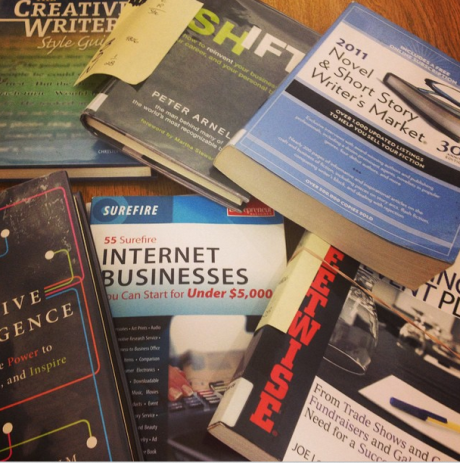
As a professor, I have to constantly juggle my time, including work, writing, and family responsibilities. This was what I did yesterday: spent a few hours at the library.
One the eve of the beginning of the spring semester, I thought I’d share something that I’ve seen as the downfall of a lot of college students with regard to their academics. It’s not something earth-shattering, but it is something that is real. The good news is it’s something that can be rectified if taken seriously, and it can make their lives infinitely more manageable.
The biggest mistake some college students make is that they do not budget their time properly.
There are various reasons for the lack of time management.
- They are living on their own for the first time and are tasting a sense of freedom they’ve never had before.
- They are having too much fun socializing.
- They are playing sports.
- They are active in clubs.
- They sleep a lot.
- They don’t go to class, and then miss assignments.
- They’ve never had to manage a schedule on their own.
- They get lazy.
When it’s time for the big leagues—college or university life—students have got to learn to budget their time wisely. As someone who didn’t do too well her freshman year of college because, as my dad likes to say, “She was too busy majoring in partying,” I didn’t budget my time, but was instead, spending far too many hours…doing…other…things.
When I woke up and smelled the coffee, I had garnered a job working for the Orioles at 19. I quickly had to learn how to work and succeed at a job requiring a lot of Major League hours, as well as make it to class and find time to study. My grades went up as a result of my new-found responsibilities, I became super organized because I found a sense of purpose, and I wanted to do well in all the things I tackled. In other words, I became a better student because I was forced to budget my time. The job required a lot of time at the ballpark, and I needed to do well all around.
Students who are unable to figure out how to work, go to school, and study are going to have problems. Understanding priorities—things like telling yourself “I can’t go out Friday night because I have to get this project done”—are real decisions college students will have to make. In fact, for every class students attend, they should probably be spending somewhere in the neighborhood of three hours reading, researching, working on papers or projects, or studying. Understanding these parameters can help students plan their work and study hours, and then what’s left over is time for them.

There are many studies that cite that being busy—active in recreational or collegiate sports and activities—can actually be a good thing for students. Sometimes, it leaves them little down time to do silly things or get into trouble.
I know. I know. You are wondering when a college kid gets to have fun? There is plenty of time for fun, believe me. There were many college weekends that I attended classes and studied all week, worked the Orioles games, and then was out at breakfast at two o’clock in the morning on a Saturday with my best friends after going to a club or working a late game. Yes. There is time to have fun, but the work has to get done first.
The best suggestion I can offer students is to live by your calendar or planner. Take copious notes in class (there are actually new reports that find students who hand-write notes are more likely to retain material than those who rely on PowerPoints or type them), pencil in all your assignment due dates, schedule hours you will spend in the library, pencil in the days you have to work or participate in sports or extra-curriculars (blocking out times), and then schedule in your time for fun. It is important to make time for friends, family, and hanging out with classmates, but what’s equally important is being a successful student overall.
If you have any questions, please feel free to ask me in the comments area. I’d be happy to respond in the best way I can.

